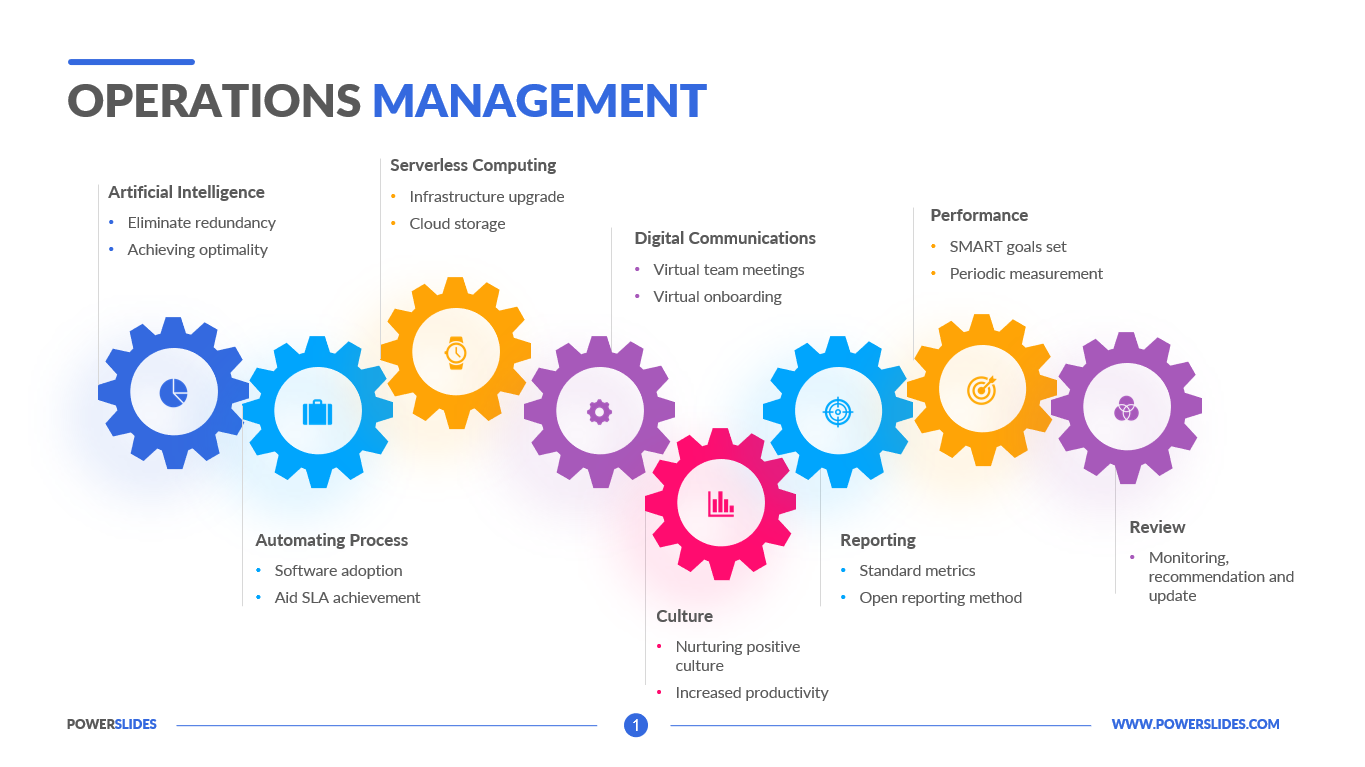
Revolutionizing Operations: Modern Operations Management
In the fast-paced landscape of today’s business world, Modern Operations Management stands out as a catalyst for efficiency, innovation, and sustainable growth. Let’s delve into the key components reshaping the realm of operations.
Integrated Technology Solutions
At the heart of Modern Operations Management is the seamless integration of advanced technologies. From cloud-based platforms to Artificial Intelligence (AI) and Internet of Things (IoT) devices, businesses are leveraging these tools to streamline operations, enhance decision-making, and gain real-time insights into their processes. The result is a more agile and responsive operational framework.
Data-Driven Decision-Making
Modern Operations Management emphasizes the importance of data in decision-making. Through sophisticated analytics, businesses can harness the power of data to identify trends, optimize processes, and make informed strategic choices. This data-centric approach not only enhances operational efficiency but also enables organizations to stay ahead of the curve in a rapidly evolving market.
Supply Chain Visibility and Optimization
In the era of Modern Operations Management, supply chain visibility is paramount. Businesses are leveraging advanced technologies to create transparent and efficient supply chains. Real-time tracking, predictive analytics, and automation contribute to minimizing disruptions, reducing costs, and optimizing the entire supply chain process.
Collaborative Work Environments
A significant shift in Modern Operations Management is the emphasis on collaborative work environments. Through digital collaboration tools and platforms, teams can seamlessly work together regardless of geographical locations. This collaborative approach enhances communication, fosters innovation, and accelerates project timelines.
Sustainability Integration
Sustainability is a key focus in Modern Operations Management. Businesses are increasingly integrating environmentally friendly practices into their operations. This includes optimizing energy consumption, reducing waste, and implementing eco-friendly manufacturing processes. The result is not only a positive impact on the environment but also an enhanced brand reputation in the eyes of conscious consumers.
Adaptive Risk Management
In the face of uncertainties, Modern Operations Management adopts an adaptive risk management strategy. Businesses are proactively identifying potential risks and developing flexible contingency plans. This approach ensures resilience in the face of unexpected challenges, allowing organizations to navigate uncertainties and maintain operational continuity.
Customer-Centric Operations
Modern Operations Management places the customer at the center of its strategies. Businesses are tailoring their operations to meet the evolving needs and expectations of their customers. This customer-centric approach involves personalized experiences, faster response times, and a commitment to delivering high-quality products and services.
Continuous Process Improvement
A hallmark of Modern Operations Management is the commitment to continuous improvement. Through methodologies like Six Sigma, Lean, and Kaizen, businesses are systematically identifying and eliminating inefficiencies in their processes. This dedication to ongoing improvement ensures that operations remain agile, efficient, and aligned with business objectives.
Digital Transformation
Central to Modern Operations Management is the overarching theme of digital transformation. Businesses are embracing the digital landscape to automate processes, enhance communication, and adapt to the changing dynamics of the market. This transformative shift allows organizations to stay competitive and future-ready.
Human-Centric Operations
While technology plays a pivotal role, Modern Operations Management recognizes the importance of the human element. Organizations are investing in training and development programs to upskill their workforce. A skilled and motivated team is crucial for the successful implementation of modern operational strategies.
Modern Operations Management: Shaping the Future
In conclusion, Modern Operations Management is reshaping the way businesses operate in the contemporary world. From technology integration to sustainability initiatives and a focus on continuous improvement, organizations that embrace these principles are better positioned for success. Explore more about Modern Operations Management at woazala.my.id.









